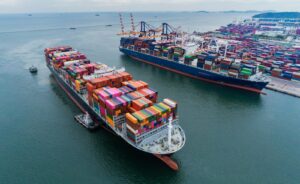But that’s not how Australia operates, and that matters for importers.
Clients ask me if we should expect retaliatory tariffs from Canberra in response to recent moves by the US.
The short answer? It’s unlikely.
Australia’s track record is clear: we don’t play the escalation game.
When China hit Australian wine with anti-dumping duties in 2020, the government didn’t retaliate. They went through the WTO, stayed quiet, kept it strategic.
Four years later, the tariffs were dropped and wine access was restored. No trade war, no damage control.
And now, with the US increasing tariffs on steel and aluminium, the approach is the same. Prime Minister Anthony Albanese put it plainly:
“Retaliation would be economic self-harm.”
That line sums it up.
We don’t weaponise tariffs. We safeguard stability.
This matters because it gives importers something rare in today’s environment, predictability.
It’s easier to plan when you know your government isn’t going to throw a tariff grenade in response to someone else’s.
If you’re importing goods from the US, here’s my advice:
1. Don’t jump at headlines: wait to see how Canberra responds.
2. Get clear on trade agreements: a lot of businesses still don’t fully leverage FTAs.
3. Understand your actual exposure: look at duty rates, suppliers, and contract terms.
4. Talk to a duty expert: understanding your real exposure helps you plan, not panic.
Staying calm isn’t just a mindset, it’s a competitive advantage when you’re managing supply chains.
If you want to assess where you’re exposed or how to navigate tariff risk without overreacting, let’s talk.

- Customs Advisory






